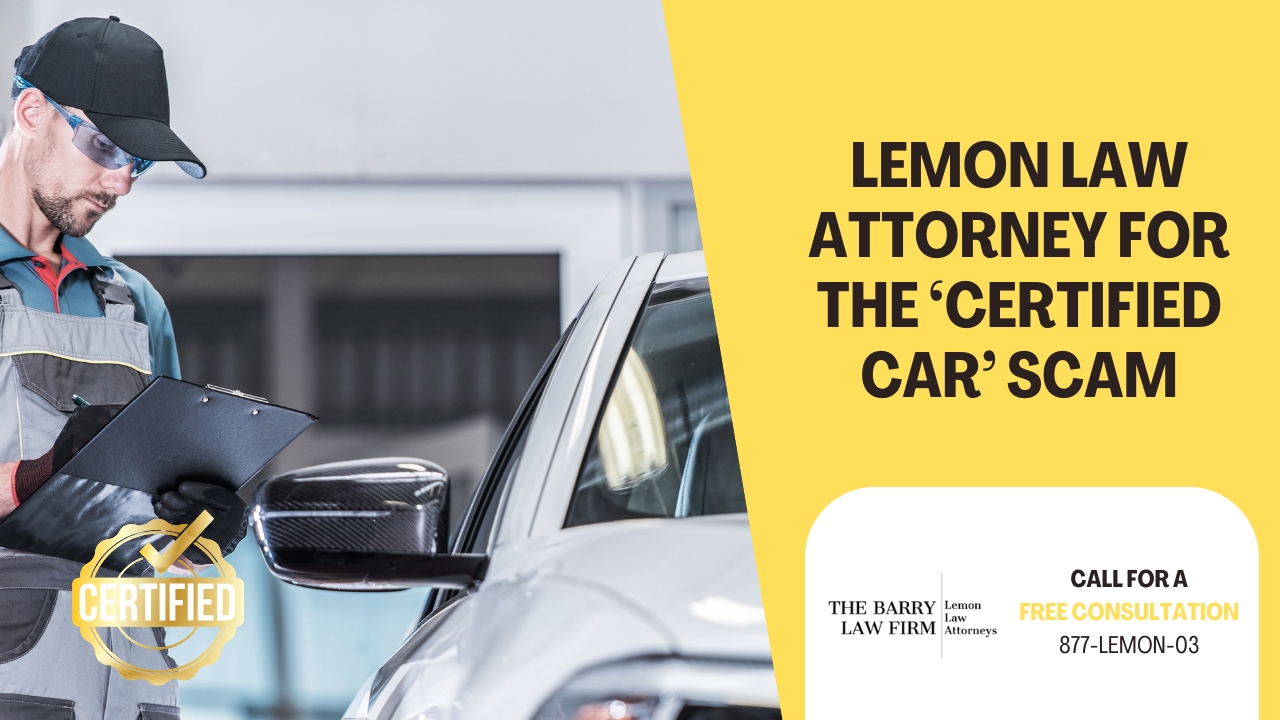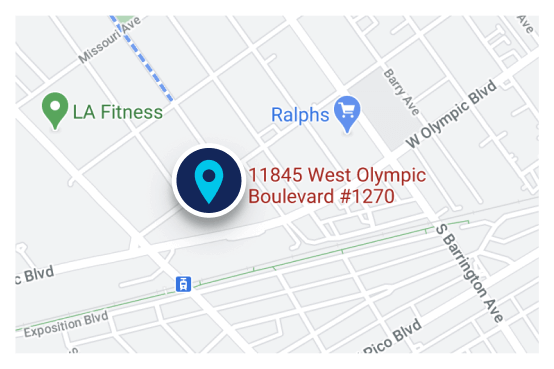
There are many reasons to buy a used car instead of a new vehicle. Often, the point of purchasing a used car is to get a better vehicle than you could normally afford for less money. Since the 1990s, car dealerships have offered “certified pre-owned” (CPO) cars. These vehicles have been reconditioned to meet strict standards and typically have low mileage and no history of accidents. While CPO vehicles cost a bit more than non-certified used cars, they have been inspected by a mechanic and should come with a warranty.
But whenever there’s a good deal for the consumer, there’s also a chance for someone to take advantage and scam them. There’s little to stop a dishonest auto dealer from slapping a “certified” label on a car that hasn’t actually been certified by the manufacturer.
When you’re in the market for a used car, you need to understand what a certified pre-owned vehicle is and what to look out for as a potential scam. You should also keep in mind that if it was sold as a certified used car with a written manufacturer’s warranty, you may have rights under California’s Lemon Law if it proves to be faulty.
If you have purchased a certified pre-owned car with the manufacturer’s written warranty from a retailer that has defied multiple repair attempts, you should speak to a California Lemon Law lawyer from The Barry Law Firm. We may be able to help you get your money back at no cost to you. Contact us online or call us today.
What Are Certified Pre-Owned Vehicles?
A certified pre-owned (CPO) vehicle is a used car that has been inspected and repaired to meet a manufacturer’s or dealer’s standards. CPO vehicles are usually in better condition than other used cars and may come with a manufacturer-backed warranty.
Each automaker has its own certification requirements for used vehicles, but typically, they must meet certain age, mileage, and condition benchmarks. For example, Chrysler requires a CPO vehicle to be no more than 5 years old and have fewer than 75,000 miles, a clean title, no frame damage, and no aftermarket accessories that compromise vehicle safety, emissions, or operation.
California law requires used cars advertised as “certified” to meet specific requirements. The car dealership must perform a complete inspection and provide buyers with a copy of the inspection report.
A vehicle cannot legally be advertised or sold as “certified” in California if the:
- Odometer doesn’t show the vehicle’s actual mileage
- Manufacturer reacquired the vehicle under California’s Lemon Law or a federal warranty law (i.e., a buyback)
- Title says “Lemon Law Buyback,” “manufacturer repurchase,” “salvage,” “junk,” “nonrepairable,” “flood,” or something similar
- Vehicle has collision, fire, or flood damage that substantially affects its safety or use after repairs
- Vehicle has frame damage
- Dealer doesn’t give the buyer a completed inspection report
- Dealer denies any warranties of merchantability (warranty promising it should work as intended)
- Vehicle is sold “as is”
Certified Pre-Owned Car Scams You Should Know About
There are several ways an unethical car dealer might falsely sell a car as a CPO. Some of the most common scams and examples of auto dealer fraud to be ready for are:
- Fake certification labels: It’s simple to print out a phony label. Look for typos, missing or incorrect punctuation, and poor grammar. Compare the manufacturer’s logo on the certification label with the one on the price sticker. You can also check the manufacturer’s website or customer service phone number to determine whether a vehicle is certified if you have its vehicle identification number (VIN).
- False odometer reading: It’s illegal to tamper with a vehicle’s odometer, but it is not difficult to do. Lower mileage may help a vehicle qualify for CPO status. A car’s odometer should match its age. A car should log 10,000 to 12,000 miles a year. On a manual odometer, the numbers should be readable, without gaps, and not crooked. Otherwise, compare the odometer reading to the mileage on the vehicle’s title, inspection, and repair
- Re-selling a lemon: Some dealerships sell vehicles they have had to buy back under California’s Lemon Law. It’s legal to sell a “buyback” if its status is disclosed. There should be a sticker on the door frame or another visible area of the car that says “Lemon Law Buyback.” The vehicle’s title should also indicate that it’s a manufacturer buyback. And remember, a buyback vehicle should not be advertised as “certified.”
- Warranty misrepresentation: You need to make sure the written warranty you receive with a CPO purchase matches what the sales rep or sales manager tells you it says. It’s easy to give misleading information about the terms of the CPO warranty as they quickly go over it in a sales office. Read the document to make sure it’s a manufacturer-backed warranty and not a third-party one, which will cover much less and won’t protect the vehicle under California Lemon Law.
You can get a vehicle history report with title, insurance loss, and salvage information for a small fee at the National Motor Vehicle Title Information System (NMVTIS) website with the VIN.
You can also find recalls issued for a vehicle through the National Highway Traffic Safety Administration (NHTSA) website with the VIN, license plate number, or year, make, and model.
The Federal Trade Commission (FTC) has additional information about what to watch out for when purchasing used cars from dealers.
How Do You Sue a Dealer for a Certified Pre-Owned Lemon?
Regardless of a CPO vehicle’s history, if it’s unreliable and unrepairable, it may be a “lemon.” And because a CPO is backed by a manufacturer’s warranty, it may be protected by California’s Lemon Law for certified pre-owned vehicles, which allows the purchaser to demand that the manufacturer buy it back. To qualify as a lemon, the vehicle must have a problem impairing its safety, use, or value that started while it was covered by the manufacturer’s written warranty. You also must have purchased the car from a retailer, such as a dealer, not a private party.
Before you file a Lemon Law lawsuit against your faulty vehicle’s manufacturer, you must have given the manufacturer (the dealership) a reasonable number of attempts to repair the issue. A reasonable number of repairs can vary from case to case. For defects posing a significant danger, California Lemon Law typically considers two or more attempts to fix the problem as reasonable. If the problem is less severe, manufacturers may be entitled to more than two attempts. Vehicles that are out of service for an inordinate amount of time may automatically qualify as a lemon in certain circumstances.
If they cannot fix the vehicle, you will likely need to file a lawsuit demanding a full refund as provided by California’s Lemon Law. A Lemon Law attorney from The Barry Law Firm can help you draft, file, and litigate a lawsuit against your faulty vehicle’s manufacturer.
What Compensation Can You Get for a Certified Pre-Owned Lemon?
The Barry Law Firm can help you pursue a Lemon Law lawsuit for the repurchase of a defective certified pre-owned vehicle. We would demand a refund of the full purchase price and your additional costs, to include your:
- Down payment
- Monthly payments and the remaining balance of the car loan
- Collateral charges, such as sales or use tax, license fees, registration fees, and other official fees
- Incidental costs, including reasonable repair, towing, rental car, and public transportation costs
- Attorney’s fees
Your vehicle’s manufacturer would be allowed to deduct a “usage fee” or “mileage offset” from the amount they reimburse you. It is based on the miles driven before your first attempt to have the vehicle’s unrepairable problem corrected.
How Can a California Lemon Attorney Help You?
The Barry Law Firm can help you demand all of your money back if you have been sold a defective certified pre-owned vehicle. We will:
- Help you compile documents needed to support your Lemon Law claim, including:
- Vehicle purchase or lease contract
- Manufacturer’s written warranty
- Loan documents
- Repair orders and invoices
- Records of payments on your loan and for registration, repairs, and collateral costs
- Correspondence with the dealership or manufacturer
- Collect additional evidence and consult with experts
- Make the process as convenient as possible for you, allowing you to submit all documentation virtually instead of traveling to our office
- Aggressively negotiate with the manufacturer for a full settlement for you
- Take a strong and persuasive case to trial, if necessary
The Barry Law Firm will calculate all of your costs and losses to maximize your recovery. Plus, California’s Lemon Law requires vehicle manufacturers to pay the consumer’s legal fees in a successful claim. We never charge car owners or lessees for our legal services. No matter the outcome, you will never see a bill from us.
If You Need Help with a Lemon Case, Call Today for a Free Consultation!
The Barry Law Firm in Los Angeles, CA, can help you pursue the maximum amount of compensation available to you under California’s Lemon Law if your certified pre-owned vehicle has unrepairable defects covered by the manufacturer’s written warranty. Contact us online or call today for a FAST & FREE consultation.



